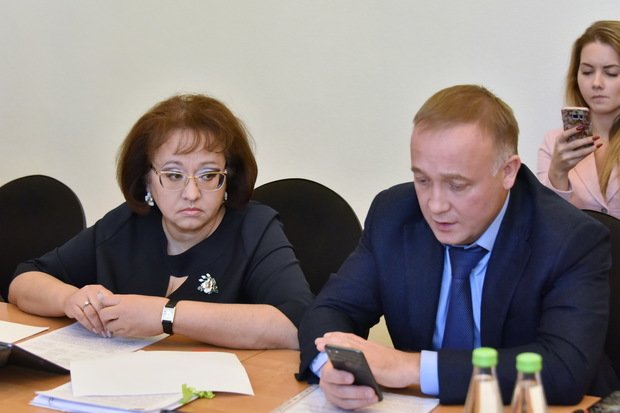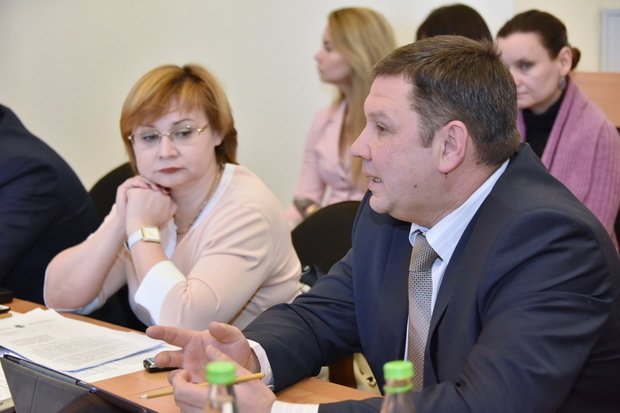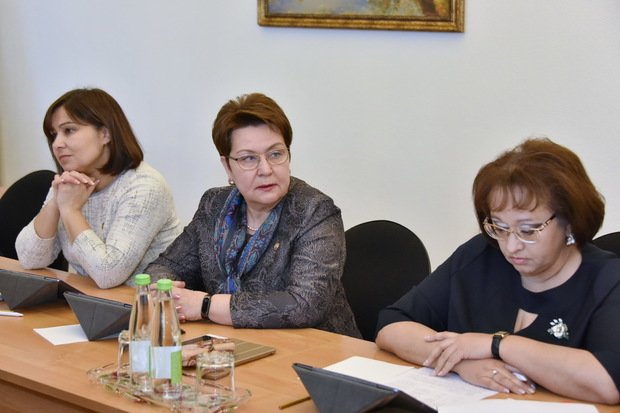''Why do we write off 21 million rubles but can't find money for a child?''
Medications gather dust in warehouses for years or are thrown out, but the health ministry states about a funding gap
Medical institutions write off drugs worth tens of millions of rubles, while those in need of expensive treatment can't get drugs and they either quietly die or go to charity funds in the hope for life, it was found out at a meeting of the Committee on social policy of the State Council of Tatarstan. The deputies were reported on how in the republic benefit recipients are provided with medicines — or rather, are not provided. ''I want still to ask — why we have not been able to solve this problem for so many years?'' the parliamentarians asked the deputy health minister and director general of Tattekhmedfarm. Read the details in the material of Realnoe Vremya.
Accounts Chamber and Tattekhmedfarm did not agree on number of benefit recipients
The number of regional beneficiaries decreased by 17,563 people in 2017, but the government began to spend more money to provide medicines — annually by 7-9%, auditor of the Accounts Chamber Ilnur Mubarakov reported on the results at the meeting. In 2015-2017, the total volume of financing amounted to 2,6 billion rubles. Tattekhmedfarm provided the health ministry of Tatarstan and subordinate institutions with drugs by 53 million more than stipulated in the contract.
It turns out a paradoxical situation — more drugs, less beneficiaries, but they are still not happy. According to the opinion poll conducted by the Accounts Chamber, 2/3 of the respondents stated that they received medicines in full, 15% pointed to interruptions in the supply of medicines; 51% of the respondents stated that they buy medicines at their own expense.
Director general of Tattekhmedfarm Oleg Akberov volunteered to explain this phenomena. According to him, there is still a lack of funding, and beneficiaries are becoming more despite the report of the Accounts Chamber. The reason for this is prophylactic medical examination, during which they revealed new sores of Tatarstan citizens.

According to him, 85% of the funds for preferential provision are spent on the categories of diseases such as diabetes, bronchial asthma, oncology. At the same time, almost 90% of patients with ophthalmologic diseases, 80% — with tuberculosis and 50% — with asthmatics do not receive medicines (this is already the data of the Accounts Chamber).
About how they wrote off 21 million rubles and another 8 million are be being prepared to
''Still, I would like to ask why we have not been able to overcome this problem for so many years?'' vice speaker of the Tatarstan parliament Tatiana Larionova lost her patience. Her question was answered by deputy minister of healthcare Farida Yarkaeva. It turned out that again it was ordinary patients to blame, but not those that came for medical examinations, but more or less healthy beneficiaries, who ''take'' money from the programme of preferential provision.
''The programme is designed on the principle that the less sick patients pay for the more sick ones. The standard for one patient is 823 rubles per month, but the need, for example, for those in need of hemodialysis can be 50 thousand, 100 thousand rubles per month. And those patients for whom 823 rubles a month is enough, they choose money instead of privileges, and thus financial stability of the programme is lost,'' the deputy minister explained.
According to Yarkaeva, 69% of beneficiaries in Tatarstan have chosen money. This, however, has long been a known problem. The discovery for the people's deputies was how many drugs are written off due to the fact that clinics refused them or their expiration date expired. ''The share of written-off drugs from the total annual turnover for the first 9 months of 2017 amounted to 0,17%,'' Oleg Akberov said. ''And how much is it in rubles?'' deputy chairperson of the State Council Committee on social policy Tatyana Voropaeva asked to specify. It turned out that 21 million rubles went down the drain. There are also drugs worth 8,2 million rubles in stock because they are not in demand by clinics. And since the pills have a limited shelf life, they will soon go to the trash.
''The surplus of medicines not used for more than a year has increased by 26 times,'' said auditor of the Accounts Chamber Ilnur Mubarakov.

The head of Tattekhmedfarm again had to answer. According to him, some goods are specific and cannot be redistributed to other institutions, so they are written off. So, the republican oncologic dispensary has written off 10 out of 60 medical products at 248,000 rubles. And the purchase of drugs with a shelf life on the verge of termination is due to a small shelf life or the fact that drugs are imported — it takes much time before they reach Russia and are certified… but Akberov immediately decided to sweeten the pill by adding that the cost of writing off drugs do not fall on the budget, they are written off at the expense of the enterprise.
''Why do we write off 21 million but can't find money for a child? That's an outrage!''
The announced figures impressed commissioner for human rights in Tatarstan Saria Saburskaya.
''Why don't we make thrifty use of the budget funds? Millions are written off, even at the expense of your profits! I was approached by the parents of a schoolgirl sick with phenylketonuria, she was denied preferential drugs, they were said that there is no money. Why do we write off 21 million rubles but can't find money for a child? That's an outrage!'' Saburskaya was indignant.

''This is a special case,'' the deputies nodded, making it clear that nothing can be done here within the legal framework. Meanwhile, in Tatarstan, there are 49 people with orphan (rare) diseases, which are just suitable for the definition of ''a special case''. The cost of their treatment can reach hundreds of millions of rubles a year, funding within the regional budget is not provided. The difficulty lies in the fact that patients with individual diseases are no more than seven throughout the country, and it cost several times more for individual subjects to purchase drugs, so to speak, in retail. According to Farida Yarkaeva, the federal center is working on the issue of centralized financing that would help to solve this problem. The decision is expected in 2019.